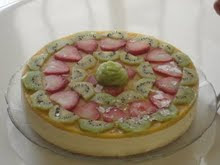
Essential oils extracted from oranges can inhibit the activity of salmonella and may be useful as natural antimicrobial agents, according to a study published in the Journal of Food Science.
"Essential oils from citrus offer the potential for all natural antimicrobials for use in improving the safety of organic or all natural foods," the researchers said.
Prior studies have demonstrated that various citrus essential oils can function as natural preservatives by inhibiting the activity of fungi and bacteria. In the current study, researchers exposed 11 different strains of salmonella to seven different orange essential oils: cold-pressed Valencia orange oil terpeneless, Valencia orange oil, cold-pressed orange terpenes, high-purity orange terpenes, d-limonene, terpenes from orange essence and five-fold concentrated Valencia orange oil.
Three of the oils inhibited salmonella activity: orange terpenes, single-folded d-limonene, and orange essence terpenes. The most effective essential oil was orange essence terpenes, with a minimum inhibitory concentration of between 0.125 and 0.5 percent. The other two essential oils had minimum inhibitory concentrations of 1.0 percent.
The researchers then examined the chemical makeup of the essential oils with mass chromatography mass spectrometry analysis. They found that d-limonene composed 94 percent of the oils, with myrcene composing another 3 percent.
The results follow those of another recent study, conducted by researchers from Miguel Hernandez University in Alicante, Spain, and published in the journal Food Chemistry. In that study, researchers found that oils from grapefruit, orange, lemon and mandarin all inhibited the activity of the common food molds Aspergillus niger, Aspergillus flavus, Penicillium chrysogenum and Penicillium verrucosum.
"It seems that citrus essential oils could be considered suitable alternatives to chemical additives for use in the food industry, attending to the needs for safety and satisfying the demand of consumers for natural components," those researchers wrote.











No comments:
Post a Comment